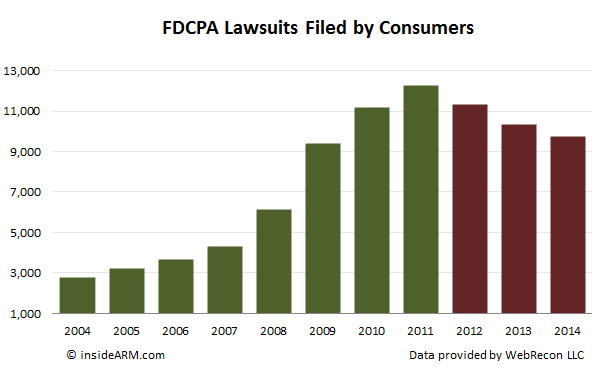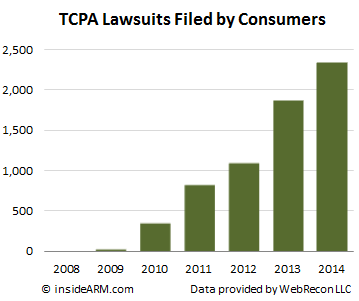
A report released Thursday by the National Consumer Law Center (NCLC) urges the CFPB to prohibit debt collectors from attempting to seek payment on accounts that are beyond the statute of limitations. It’s a reiteration of recommendations the group made in response to the CFPB’s advance notice of proposed rulemaking (ANPR) for debt collection last year.
Underscoring exactly what the group is calling for, the report’s introduction includes the following passage, in bold and with the emphasis shown:
“…the CFPB should ban all efforts to collect out-of-statute debt—whether by litigation or other means.”
The report, “Zombie Debt: What the CFPB Should Do about Attempts to Collect Old Debt,” notes that statutes of limitations on debt vary widely state-to-state, leading to confusion among consumers. Two states, Mississippi and Wisconsin, even have laws that already extinguish the debt once the statute of limitations has run.
NCLC also calls out the prevalence of time-barred debt in the collection system, mostly due to the practices of debt buyers.
The report calls on the CFPB to use its authority under the Dodd-Frank Act to define time-barred debt collection as an unfair, deceptive, or abusive acts or practice (UDAAP), thus making it illegal.
The group called for an outright ban on time-barred debt collection in its extensive public comment to the CFPB’s ANPR for debt collection regulations. Like in that comment, the NCLC concedes that the CFPB is unlikely to go that far in its rulemaking and makes other suggestions should the Bureau not ban out-of-statute collection altogether.
The recommendations include codifying existing law by writing a rule that bars the filing or threat of a lawsuit to collect old debt. It also notes that offers of settlement should be treated the same way, even thought that is not part of current law.
The proposal for the treatment of settlement offers follows a string of confusing Circuit Court rulings on the matter. NCLC’s recommendations align with courts that have ruled that a settlement offer on a time-barred account, without proper disclosure, could be deceptive and misleading.
NCLC’s report also calls for the CFPB to go a step further in rules concerning the legal collection of time-barred debt; it wants to prohibit collection lawsuits on debt that has been reaged with a payment.
In addition, the group wants to ban the sale of time-barred accounts. “Once a debt is time-barred, creditors, debt buyers, and debt collectors should also be banned from reselling the debt to another debt buyer or debt collector,” the report reads.
Finally, the report calls for a wide range of very strong disclosures for consumers if the account being collected is out-of-statute. On every communication (not just the initial), NCLC wants the following disclosure:
IMPORTANT NOTE –
- We cannot sue you to collect this debt because it is too old.
- But if you pay us anything or agree that you owe the debt, we may be able to sue you for the entire debt.
In addition to a rights disclosure, the NCLC wants a series of disclosures concerning credit reporting made in every communication concerning old debt. In short, the NCLC is looking for language that will tell consumers that their credit score may not improve if the debt is paid.
If the debt is being reported, the suggested language is:
- Paying this debt will not remove it from your credit report, but will only show that the account has been paid.
- Paying this debt may not improve your credit record or score.
If the debt is not being reported to credit bureau:
- This debt does not show up on your credit report.
- Paying this debt will not help your credit record or score.
NCLC Calls for Outright Ban on the Collection of Time-Barred Debt
http://www.insidearm.com/daily/debt-collection-news/debt-collection/nclc-calls-for-outright-ban-on-the-collection-of-time-barred-debt/
http://www.insidearm.com/feed
insideARM













